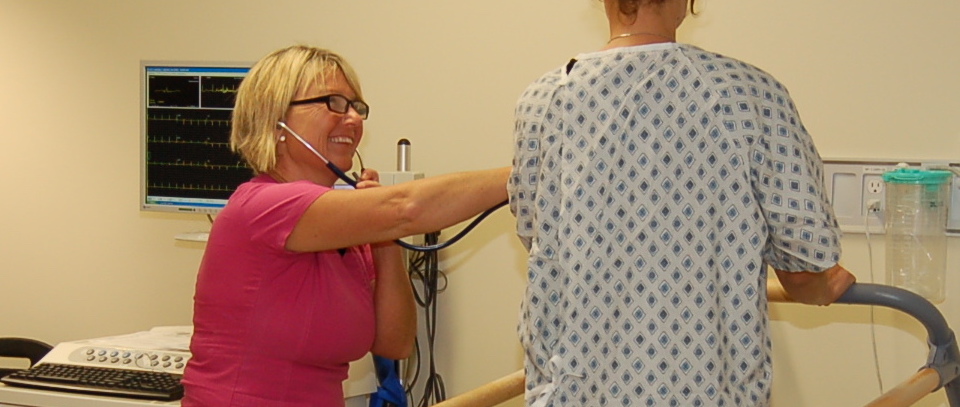A treadmill stress test is an electrocardiogram (ECG) used to assess the cardiovascular condition during physical effort. While you are walking on a treadmill, your heart’s response to exercise is recorded.
The stress test is used to detect cardiac problems or to assess a medical condition, for example:
- Identify the cause of chest pain
- Diagnose or assess the progression of a cardiovascular disease
- Detect conditions relating to irregular heartbeat, very fast or slow heartbeats, palpitations, dizziness or excessive fatigue
- Determine a safe intensity level and frequency of physical activity a patient may undertake.
The treadmill stress test is provided by the Cardiology Clinic.
How to access our services?
- You must have a referral from your physician to pass the treadmill stress test.
